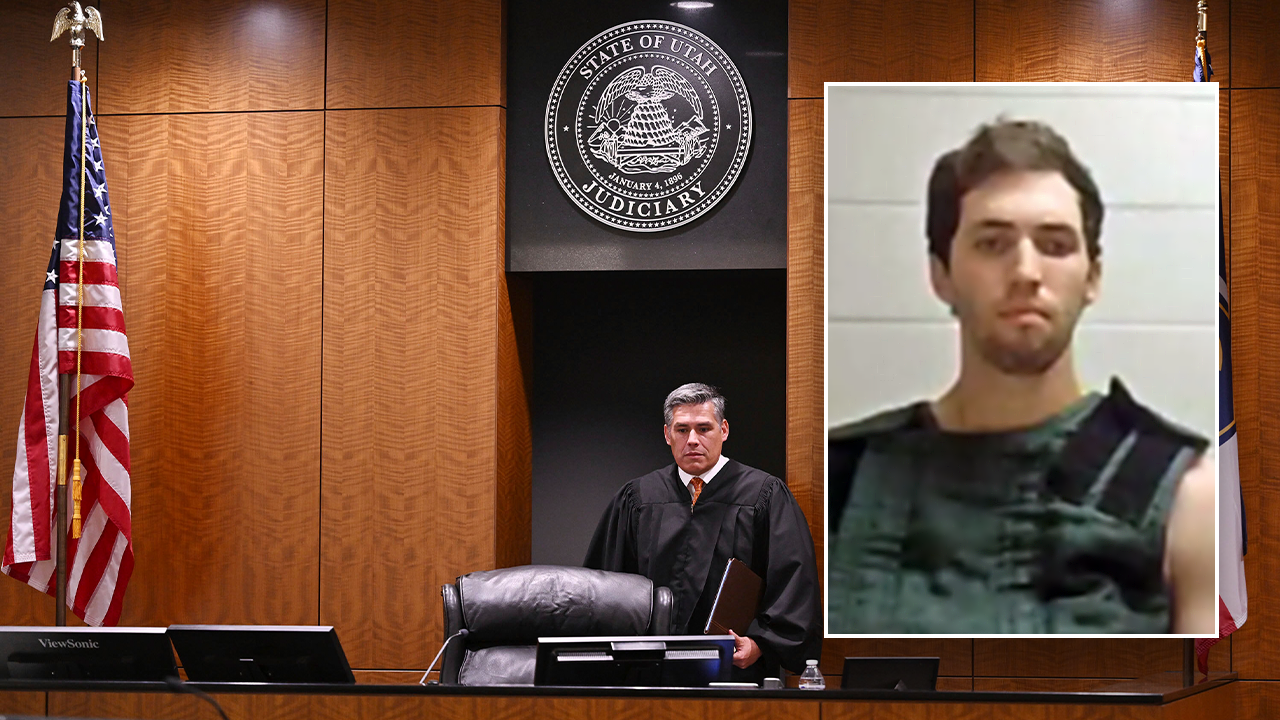Avalanche of Evidence: Tyler Robinson Faces Death Penalty in High-Profile Charlie Kirk Murder Case
The nation’s attention is riveted on the upcoming virtual court appearance of Tyler Robinson, the man accused of assassinating beloved public figure Charlie Kirk. As state prosecutors push for the death penalty, legal analysts warn that Robinson faces a mountain of evidence so formidable that his defense may have little room to maneuver. The case, already polarizing and emotionally charged, is set to become a test of both justice and morality in the American legal system.
.
.
.

Virtual Courtroom: Security and Optics
Today’s hearing will be conducted via video link, a decision driven by both safety and the optics of justice. Legal experts say the intensity of public passion surrounding Kirk’s murder makes it unwise to risk a physical courtroom appearance for what is, in legal terms, a routine status and waiver hearing. Robinson, the accused, will appear on video from jail, sparing the court—and the public—the image of a defendant in shackles, which could unfairly sway potential jurors.
Gregg Jarrett, Fox News legal analyst, explained, “You avoid the negative optics. Accused in shackles might create undue bias in the minds of potential jurors seen in photographs and videotape. You’re not going to see him there literally in court today—only by videotape—and there are good reasons for that.”
The Evidence: DNA, Motive, and Messages
But the real drama lies in the evidence. Prosecutors have amassed what they describe as an “avalanche” of forensic and digital proof linking Robinson to the crime. The case file includes DNA matches on the murder weapon—a rifle—its trigger, spent and unused cartridge casings, and even the towel used to wrap the firearm. Text messages allegedly sent by Robinson, including one stating “I had the opportunity to take out Charlie Kirk and I’m going to take it,” have further cemented the prosecution’s narrative.
Robinson’s family background has also come under scrutiny, with investigators noting a shift from left-leaning to pro-LGBTQ and transgender beliefs. Prosecutors argue this ideological evolution may have played a role in Robinson’s motive, though the defense is expected to challenge this as speculative.

Public Defender: A Formidable Challenge
Robinson has been appointed a public defender—a seasoned attorney with extensive experience in capital cases. Jarrett noted, “The evidence is powerful, it’s compelling, it’s formidable. Three court-appointed defense counsel in this case, as required by law. They are vastly experienced in death penalty cases. Make no mistake, they will challenge the admissibility of all of the evidence you have recited. In the end, I suspect, they will not succeed. I think their ultimate goal is to save their client’s life.”
For the defense, the challenge is daunting. With DNA, motive, and digital evidence all stacked against Robinson, the legal team’s strategy may shift from acquittal to mitigation—arguing for life imprisonment over the death penalty.
The Moral Quandary
The case presents a unique moral dilemma for the jury and the public. Charlie Kirk, the victim, was known for his advocacy of charity, love, and understanding. He embraced mercy and forgiveness, values that may weigh heavily on jurors during the penalty phase of the trial.
Jarrett reflected on this, saying, “Is it morally correct under these circumstances to put somebody to death? Personally, I have long been against the death penalty for moral reasons. I understand that the Supreme Court has upheld capital punishment. But this case, I think, presents a moral dilemma for these jurors that is unique above all others.”
Plea Deal Possibilities
As the case moves forward, speculation swirls about the possibility of a plea deal. Recent high-profile cases, such as Bryan Kohberger’s in Idaho, have demonstrated that prosecutors are sometimes willing to negotiate in exchange for information that could lead to further arrests or prevent future crimes.
“There’s been speculation, and even the FBI director has talked about these chat rooms,” Jarrett said. “If this suspect was willing to give up people that are in these chat rooms and there is credible evidence, could that possibly be something that the state is interested in? Yes, absolutely it could be. A plea deal is always a factor.”
Such a deal could hinge not just on Robinson’s willingness to cooperate, but also on the wishes of Kirk’s family. For some, the thought of life imprisonment—“caged like an animal for life than the easy exit of death”—may be a more fitting punishment.

The Mountain of Evidence
The prosecution’s case is built on a foundation of forensic science and digital sleuthing. Investigators have traced Robinson’s movements, communications, and connections in painstaking detail. The rifle used in the killing was found with Robinson’s DNA on the trigger and barrel. Cartridge casings at the scene matched those in Robinson’s possession. Surveillance footage places Robinson near the crime scene at the time of the murder.
Text messages recovered from Robinson’s phone reveal chilling intent. “I had the opportunity to take out Charlie Kirk and I’m going to take it,” reads one message, sent shortly before the murder. Another message, referencing Kirk’s political activism, suggests a personal vendetta.
Digital forensics experts have also analyzed Robinson’s online activity, uncovering connections to extremist chat rooms and forums. The FBI is reportedly investigating whether Robinson acted alone or as part of a larger conspiracy.
Defense Strategy: Mitigation Over Acquittal
With the evidence so heavily stacked against him, Robinson’s defense team is expected to focus on mitigation. The goal: to persuade the jury that life imprisonment is a more just outcome than execution. They may argue that Robinson’s mental health, personal history, or ideological influences played a role in the crime, seeking to humanize him in the eyes of the jury.
The defense may also challenge the admissibility of certain evidence, arguing that some forensic techniques are unreliable or that digital evidence was obtained improperly. However, legal analysts believe these challenges are unlikely to succeed given the strength of the prosecution’s case.
The Road Ahead: A Long Debate
As the hearing unfolds, the debate over Robinson’s fate is likely to be long and contentious. The case has already sparked national conversations about the death penalty, the role of ideology in violent crime, and the limits of mercy in the face of overwhelming evidence.
For Kirk’s family and supporters, the pain is fresh and the demand for justice is urgent. For Robinson and his defense team, the fight is now about saving his life, not clearing his name.
The Broader Impact
Beyond the courtroom, the Robinson case is a stark reminder of the challenges facing the American justice system. It raises difficult questions about the balance between security and fairness, the power of forensic evidence, and the moral weight of the death penalty.
As the proceedings continue, the nation watches, waiting for answers—and for justice.





